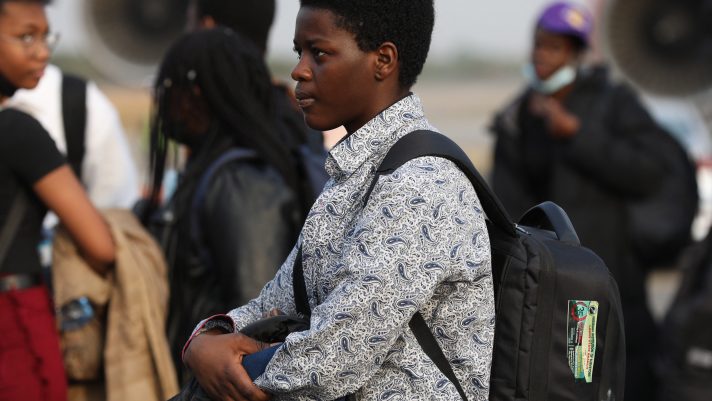By EDITOR
“I am now on antidepressants and being here alone, I have nobody to talk to. For over two months, I’ve barely eaten or slept and I don’t understand why this is being meted out to us; we didn’t do anything wrong,” the BBC quoted Nigerian student in the UK, Esther Obigwe.
Obigwe is one of several Nigerian students who are currently facing deportation after they were thrown off their courses and ordered to leave the United Kingdom when they fell behind on their tuition and other fees due to a drop in the value of the naira.
Some of the students have also reported having suicidal thoughts after the devaluation of the naira left them unable to afford their tuition fees, according to a BBC report.
Teesside University, named in the report, withdrew the students’ admissions and reported them to the Home Office for failing to meet payment deadlines.
The university’s actions have forced some students nearing graduation to return to Nigeria, leaving them devastated.
Some of the 60 students reportedly interviewed by the BBC said they had suicidal thoughts and accused the University of being “heartless” towards those who had fallen behind on their payments.
These students were reportedly locked out of university accounts and involuntarily withdrawn from their courses.
Several of these students also reported being contacted by debt collection agencies contracted by the university.
Adenike Ibrahim, nearing the completion of her dissertation, missed a single payment and was then kicked off her course and reported to the Home Office.
Ibrahim subsequently settled her outstanding fees; however, she was denied re-enrollment and now faces deportation along with her young son.
“I did default on payments, but I’d already paid 90% of my tuition fees and I went to all of my classes,” Ibrahim said in the report. “I called them and asked to reach an agreement, but they do not care what happens to their students.”
Ibrahim described the experience as “horrendous,” and she had no idea what was happening with her qualification, adding that the whole situation “has been heartbreaking for my son, especially; he has been in so much distress since I told him.”
Esther Obigwe, another affected student, described repeated attempts to communicate her financial struggles to the university, but she received no response until her enrollment was terminated and she received notice to leave the country.
“I attended all of my classes and seminars; I’m a very active student,” Obigwe said. “It is disheartening. I am now on antidepressants and being here alone, I have nobody to talk to. For over two months, I’ve barely eaten or slept and I don’t understand why this is being meted out to us; we didn’t do anything wrong.”
She added that most of the students had “spent a lot of money to be here.”
One anonymous student, nearing completion of his master’s degree, said he had seriously considered suicide and was not eating or drinking.
The university, according to the BBC, said it had made “every effort” to support affected students, who had now been offered individual meetings with specialist staff and bespoke payment plans where requested.
However, some students who managed to settle their outstanding debts remain subject to the Home Office’s decision as the university is now unable to intervene.
A spokesperson for Teesside University noted their commitment to immigration regulations, stating, “Teesside University is proud to be a global institution with a diverse student population but is also very aware of its obligations regarding visa issuance and compliance.
“These strict external regulations ensure that the university fully supports a robust immigration system and is outside of the university’s control.”
The spokesperson added that they were “aware of the challenging financial situation faced by some students” and had “actively offered bespoke payment plans where requested.
“This option has been taken up by many of our international students; however, some students have still defaulted on these revised payment plans.”
Meanwhile, the Home Office told the BBC that the decision to offer or withdraw visa sponsorship rests with the sponsoring institution, adding that wherever a visa was shortened or cancelled, individuals should “take steps to regularise their stay or make arrangements to leave the UK.”
